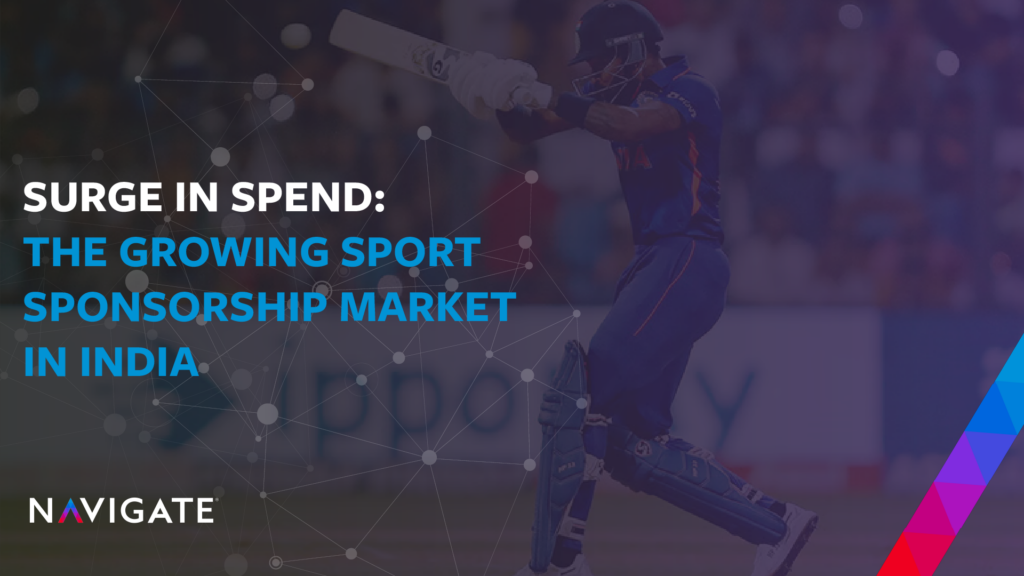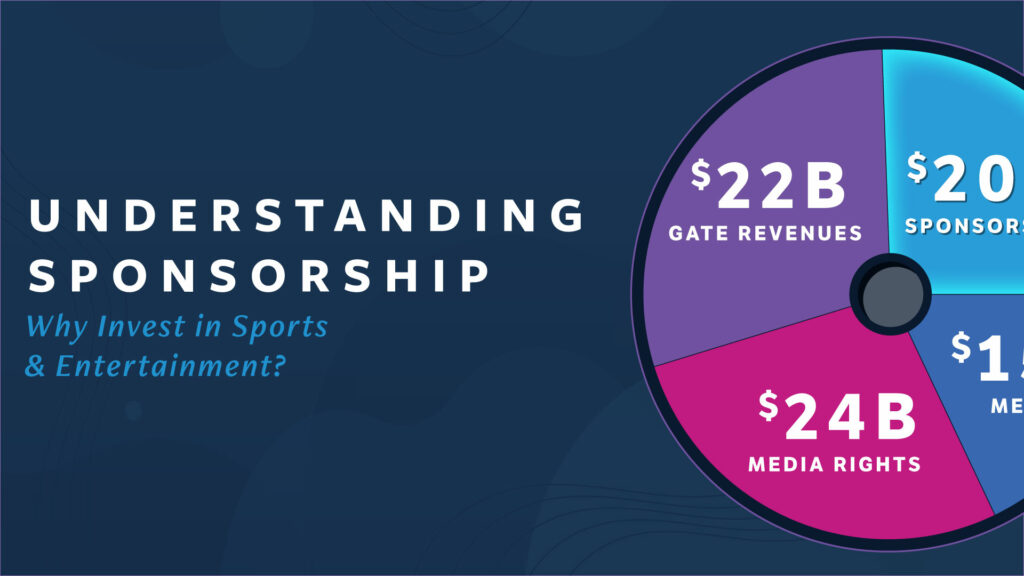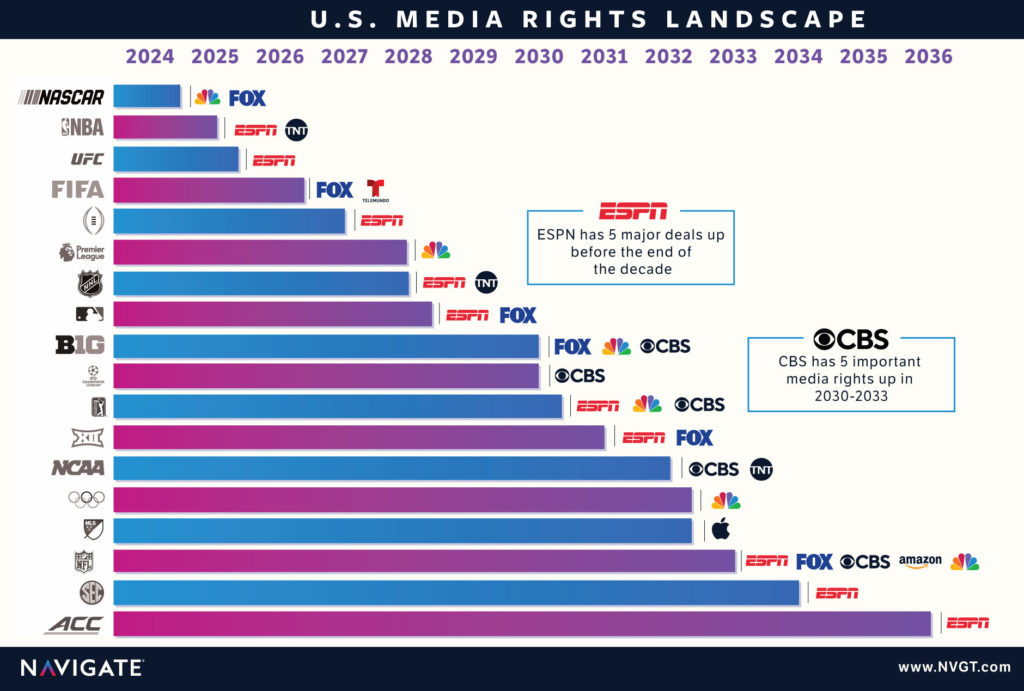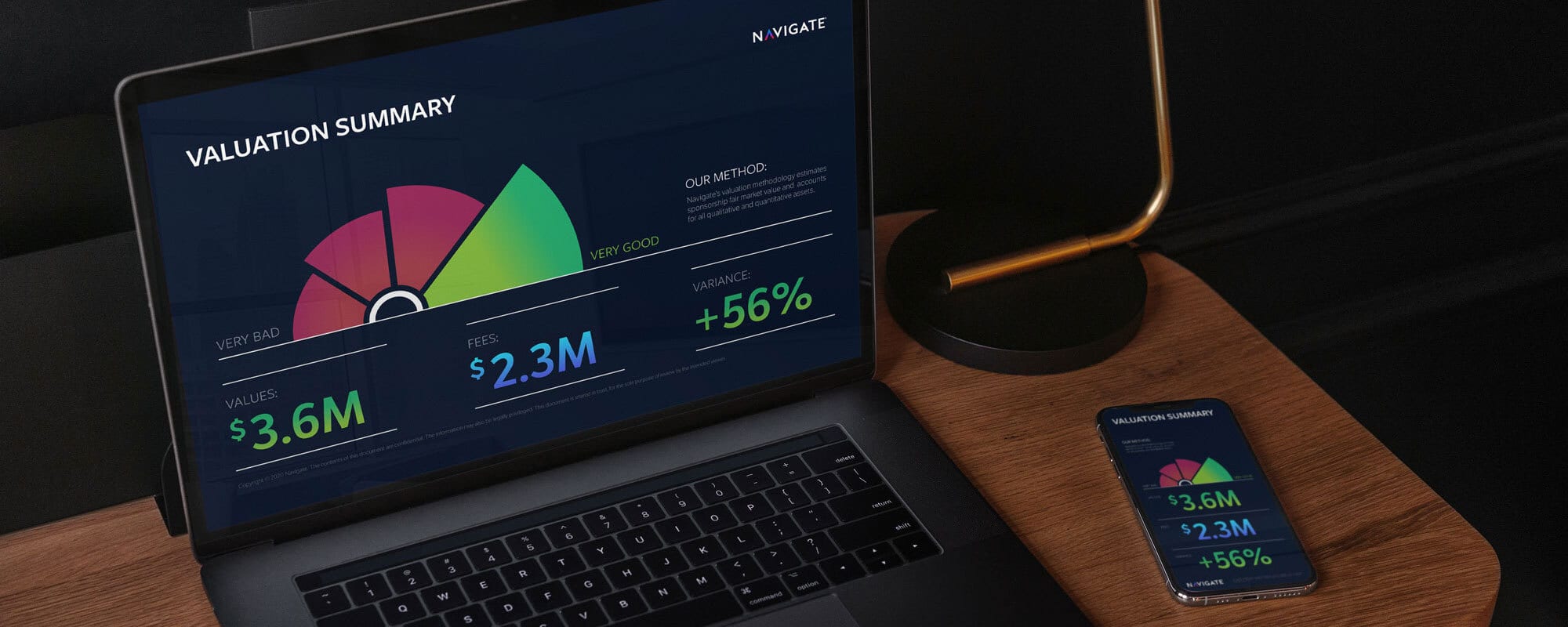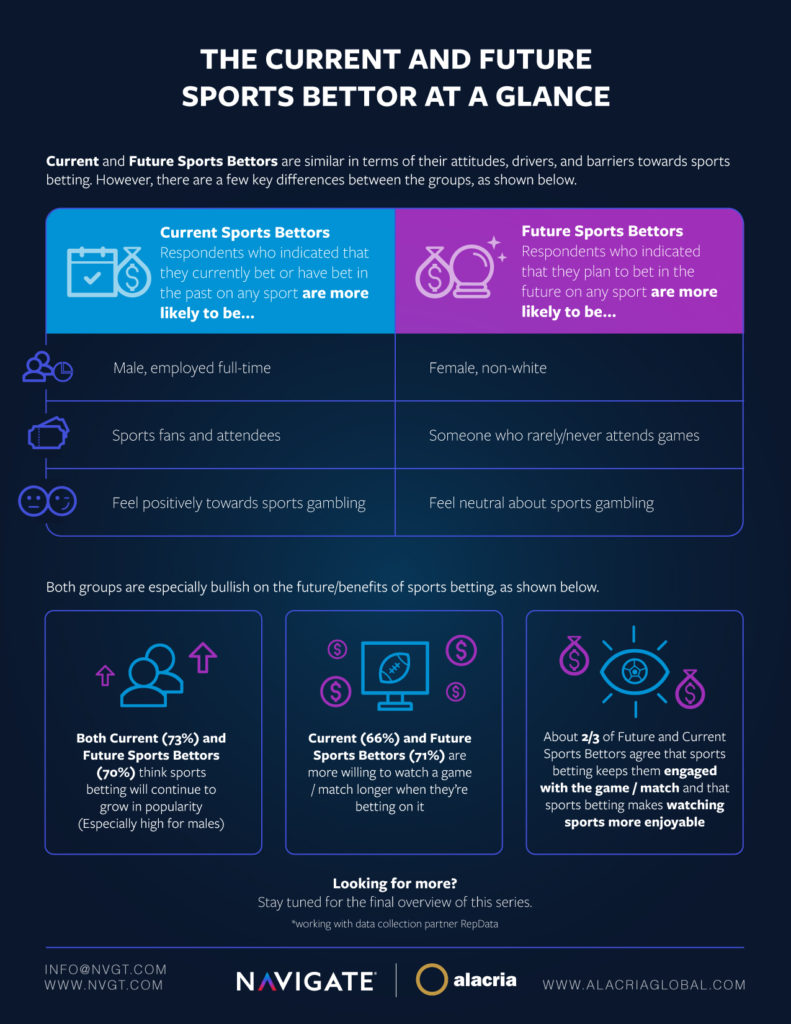
The Current and Future Sports Bettor at a Glance
In our last infographic we shared sentiment and behavior among the ‘average sports fan’. In this piece, we will expand on who the Current Sports Bettor is, and what the Future Sports Bettor may look like.
Current and Future Sports Bettors are largely similar in terms of attitudes and drivers / barriers towards sports betting. A key difference between the two groups is sports fandom – Current Sports Bettors are more likely than Future Sports Bettors to be avid sports fans, attend sporting events, and watch sporting events. However, the general pattern for the most popular sports and viewership tend to look similar to those of Current Sports Bettors, just on a lesser scale. (As a reminder, to qualify for the study you did have to be at least a ‘casual’ fan of one sport).
Both groups are bullish on the future / benefits of sports betting – 73% of Current and 70% of Future Sports Bettors think sports betting will continue to grow in popularity. These percentages are especially high for male bettors. Two-thirds of Current Sports Bettors and 71% of Future Sports Bettors say that they are willing to watch a game / match longer when betting on it. This is likely tied to the fact that about two-thirds agree that sports betting keeps them engaged with the game / match and that sports betting makes watching sports more enjoyable. A possible reason Future Bettors have not converted to Current Bettors may be attributed to the barriers highlighted in Part 2 of our series. In addition, the ‘newness’ of sports gambling may leave Future Bettors unsure how to feel about it – 45% of Future Bettors feel “neutral” about sports gambling (vs. 36% of Current Bettors). That ambivalence may evolve (as stated in part two), but now is a pivotal time for sports betting as people will start to solidify their views over the next 12 months.
Sports betting is not without its lows. While there is a wide range of emotions one can feel while sports betting, when we look at how one feels pre-event vs. post-event we see considerable deltas in terms of feeling confident and excited. About half of Current Sports Bettors feel excited pre-event, but only 31% say the same post-event. Following the same pattern, 38% of Current Sports Bettors feel confident pre-event and only 23% feel confident post-event. The data suggests that the outcome of an event can have a considerable impact on one’s emotional state.
Although there are a few differences between Current Sports Bettors and Future Sports Bettors, the groups largely resemble each other. These insights provide assurance that with the right strategy in place, Future Sports Bettors are within reach and capable of being adopted into the sports betting market.
What brands and properties need to keep top of mind when developing a sports betting strategy:
- The key approach when trying to adopt new bettors is strategy first, then secure aligned partnerships.
- Given Future Sports Bettors believe they will watch games for longer when betting, properties and brands should be building strategies to benefit from this opportunity.
- Seek partnerships that align with the same strategy and are prepared to invest to drive that growth.
- More viewers could result in larger media rights and sponsorship deals, which ultimately leads to larger growth in sports betting.
- The profile of Future Sports Bettors is similar to those currently betting, yet they haven’t chosen to place their first bet. Understanding the reasons why they haven’t done so, allows agencies to create messaging to get them betting, growing adoption for the betting agencies and potential viewership/fandom for the sports.
If you have any questions or would like to discuss the full report with our team, please contact Kayla Ketring at KAYLA@NVGT.COM.
*Insights / legal states were as of October 2021 when the study was fielded


